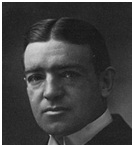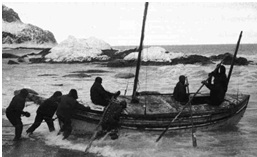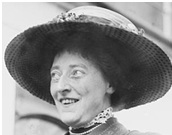|
 |
|
 |
|
|
||
Ernest Shackleton Leadership
Ernest Shackleton (1874-1922)
Anglo-Irish polar explorer and arch rival of Captain Robert Scott. Shackleton (pictured right) was famous for his Antarctic expedition, 1914-6 in his ship, Endurance.
Why was he a great leader?
1. Success from failure and change His four expeditions (1901- 21) never achieved their aims (i.e. reaching the South Pole and crossing
Antarctica). After the sinking of the Endurance, in 1916 Shackleton and five others heroically rescued the rest of his shipwrecked crew from Elephant Island (off the Antarctica coast, pictured right is their departure). They pulled an open boat for 17 days to a Norwegian whaling station 700 miles away. “Not a life lost and we have been through hell”, he told his wife, Emily.
2. Led by example He led from the front, always setting his men a good example. To encourage his men to take just bare essentials on their journey from the wrecked Endurance, he threw away his precious gold cigarette case
3. Toughness and self-confidence Someone described him as a “man who could look you straight in the eyes and tell you to go to hell if
you stood in his path”. He faced mutiny only once during his shipwrecked expedition from the Scottish carpenter, Harry McNish (pictured right). Shackleton resolutely threatened to shoot him for insubordination, despite being deeply hurt by his disloyalty. McNish backed down and went on to help him rescue the others.
4. Optimism, endurance and courage He was always incredibly positive, calm and cheerful, particularly in a crisis, when his men’s morale needed boosting. He said “optimism is true moral courage” i.e. you need guts and determination to be optimistic in bad times. So he lived by his family motto “by endurance we conquer”, the reason for his ship’s name (pictured right is the sinking of the Endurance in 1915).
5. Devotion of his men They would have followed him anywhere because of their enormous respect for his:
He managed to keep their hopes alive when faced with death, winning over the whingers before they could demoralize the others (pictured right is the crew on the Endurance in 1914). He was driven by his burning ambition to bring them all back alive. “He had faults but no vices”, one of his crew said, and “he was quite willing to overlook what was bad and just remembered the good in everyone”.
6. Great people He hired people with the skills he lacked like carpentry and navigation (one of Frank Worsley's skills, the captain of the Endurance, pictured right) He admired talented people and never felt threatened by them.
7. Self-knowledge and realism He knew his limitations (in particular, laziness about learning new technical skills) as well as his strengths. So, when his 1909 expedition was only 97 miles from the South Pole, he turned back, because he had the honesty to accept that that he and his men wouldn’t succeed.
8. Pragmatic and forward looking He believed that leaders must achieve results. He also had the ability to forget failure and concentrate on present and future success.
9. Luck and love Very good weather gave him the luck to return from his 1909 expedition, having cut his food rations dangerously low. He also had the loving support of his wife, Emily (pictured right)
Key quotes on success Superhuman effort isn’t worth a damn, unless it achieves results. Difficulties are just things to overcome, after all. |
|
|
||
|
|
||
| Copyright © wisdomtowin.com 2025 All Rights Reserved | ||
|









